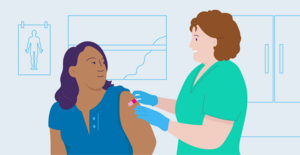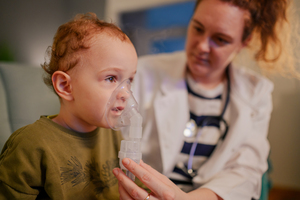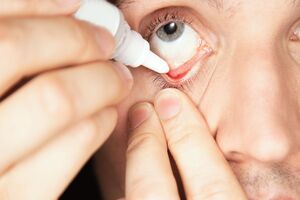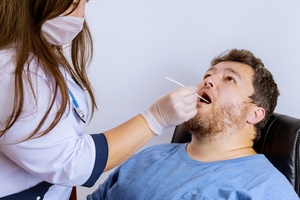Pulmonary Function Test near me
in Kensington, CT
Own a clinic? Add your location.
Help patients book appointments with you on Solv. It's free!
20 instant-book locations

American Family Care, New Britain
American Family Care

American Family Care, Rocky Hill
American Family Care

American Family Care, Southington
American Family Care

American Family Care, West Hartford
American Family Care

American Family Care, Vernon
American Family Care

American Family Care, Torrington
American Family Care

AFC Urgent Care, West Haven
AFC Urgent Care

AFC Urgent Care, Shelton
AFC Urgent Care

American Family Care, Springfield
American Family Care

AFC Urgent Care, New Haven
AFC Urgent Care

American Family Care, West Springfield
American Family Care

AFC Urgent Care, Trumbull
AFC Urgent Care

Labcorp at Walgreens, Berlin
Labcorp at Walgreens

Quest Diagnostics
Quest Diagnostics

Quest Diagnostics
Quest Diagnostics

Quest Diagnostics
Quest Diagnostics


Labcorp, Rocky Hill
Labcorp

Labcorp
Labcorp

Labcorp, Plainville
Labcorp
Own a clinic? Add your location.
Help patients book appointments with you on Solv. It's free!
Connecticut Pulmonary Function Tests
A pulmonary function test is usually performed by a respiratory therapist or another licensed pulmonary expert. In one test, a spirometer with a mouthpiece is utilized, whereas in the other, an air-tight enclosure is used. If your doctor determines that you need a pulmonary function test, you may be sent to a specialist.
A pulmonary function test may be required if you have any of the following symptoms:
- A cough that lasts for at least 8 weeks is considered chronic.
- Shortness of breath can occur even after little or no exercise.
- You've been coughing up mucus for a month or longer.
- Coughing up blood and wheezing
- Discomfort in the chest that does not go away
- Infections of the lungs are very prevalent.
Follow these steps to prepare for your pulmonary function test:
- Avoid eating a heavy lunch just before the exam.
- Do not smoke for 6 hours before your exam.
- Do not engage in any strenuous exercise for 6 hours before your exam.
- Avoid drinking coffee on the day of your exam.
- Wear loose clothing that won't get in the way of your breathing.
- If you have dentures, put them on for the test.
Because the test necessitates some rapid and forceful breathing, you may feel dizzy or lightheaded at times. Let your healthcare provider know if you need to take a break. You might be weary after the test and need to rest.
If your results indicate that you have a lung disease, your doctor will talk to you about your treatment choices, which may include pulmonary rehabilitation, medication, or oxygen therapy. Changing your lifestyle can also help you improve your lung health. Quitting smoking, eating a good diet, exercising regularly, and getting enough quality sleep are all important for lung health. Additionally, staying hydrated might help thin mucus in your lungs, making it easier to breathe.
Pulmonary Function Test FAQs
What is a pulmonary function test?
The effectiveness of the lungs is determined by a pulmonary function test. The test evaluates lung volume, capacity, gas exchange, and rate of flow, as well as other lung-related characteristics. Your doctor may be able to identify and treat some lung diseases based on the results.
How are pulmonary function tests performed?
Pulmonary function tests can be performed in two ways, depending on the information your doctor needs. In some cases, your doctor may request both tests since they measure different things. To evaluate your breathing, your doctor may use a spirometer (a device with a mouthpiece) or have you stand inside an air-tight box that resembles a telephone booth.
What does a pulmonary function test measure?
- A pulmonary function test evaluates several elements of lung health. Here are a few examples:
- The volume of the lungs when they are entirely full of air is known as total lung capacity.
- The amount of air you can forcefully expel once your lungs have been completely filled is known as forced vital capacity.
- After you've expelled as much as you can, the amount of air left in your lungs.
- Functional residual capacity is the quantity of air left in your lungs after you typically exhale.
How much does a PFT test cost?
The cost of a pulmonary function test is determined by several factors, including the type of test you've had, whether you've had one or both tests, where your test was performed, and if you have health insurance. Without insurance, a pulmonary function test might cost anywhere from $340 to $830.
Does insurance cover PFT testing in Kensington?
If you have health insurance, your pulmonary function test may be paid for 80 to 100% of the cost. Your insurance company may want a note from your doctor stating that the test is medically necessary. The amount you pay out of pocket depends on whether you have a copay and whether you have met your deductible. If you have any questions about your personal insurance plan's coverage, contact your insurance carrier.
Who should get a pulmonary function test in Kensington?
For a variety of causes, a pulmonary function test may be requested. They're sometimes performed as part of a routine physical exam. They may also be necessary for people who work in hazardous environments, such as coal mines, where the risk of lung illness is greater. Your doctor may conduct a pulmonary function test to help detect allergies or lung problems such asthma, bronchiectasis, emphysema, or chronic bronchitis.
How do I read pulmonary function test results?
When reading pulmonary function test results, it's important to understand lung function and the typical values for each function examined (total lung capacity, forced vital capacity, residual volume, and functional residual capacity). Your doctor will go through the results of your tests with you and let you know if there are any anomalies to be concerned about.
How long does it take to get PFT test results in Kensington?
The test takes 45 minutes to an hour to complete. The results will need to be reviewed by a pulmonologist, a specialist who specializes in lung illnesses. The results will then be forwarded to the doctor who requested the test on your behalf. When your results are ready, schedule a follow-up visit with your doctor to go over them.
How can I book a pulmonary function test through Solv?
It's easy to schedule a pulmonary function test with Solv. In the search bar on our website, type "pulmonary." You'll notice a pulmonary function test choice emerges. After entering your address or selecting the option to use your current location, click the search icon. You'll find a list of providers in your area as well as available appointment times. Fill out the form to schedule an appointment at the best location and time for you.
Can I do at-home PFT testing?
Some lung function tests can be performed in the comfort of your own home. These use a peak flow meter, which you blow into, to measure airflow. These tests are typically given to those who have been diagnosed with a lung condition and need to monitor their airflow on a regular basis. Contact a doctor if you're having problems breathing or have other symptoms of a possible lung ailment, such as pain when breathing, shortness of breath, or chronic coughing.

Updated on Jan 25, 2025
Solv has strict sourcing guidelines and relies on peer-reviewed studies, academic research institutions, and medical associations. We avoid using tertiary references.
Related searches
DOT Exam in Kensington
Ear Wax Removal in Kensington
Physical Exam in Kensington
Sports Physicals in Kensington
A1C Test in Kensington
Allergy Testing in Kensington
Basic Metabolic Panel in Kensington
CMP Test in Kensington
COVID-19 Antibody Test in Kensington
Diabetes Test in Kensington
Diagnostic Test in Kensington
H Pylori Test in Kensington
Hepatitis test in Kensington
Mono Test in Kensington
Pregnancy Test in Kensington
Pulmonary Function Test in Kensington
RSV Test in Kensington
STD Testing in Kensington
Strep Test in Kensington
TB Test in Kensington
Thyroid Test in Kensington
Vitamin D Test in Kensington
Find lab tests
Nearby cities
Everyday Healthcare, Simplified
Expert advice to help you live your best life









